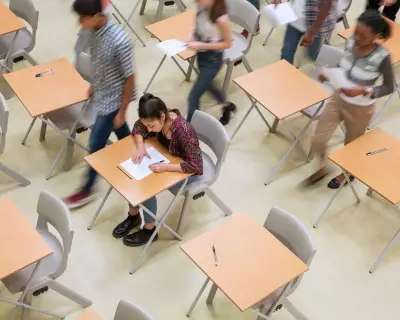
The Labour Party finds itself at the centre of an educational firestorm as it proposes sweeping changes to England's examination system, drawing accusations of "educational vandalism" from political opponents and education traditionalists.
The battle over academic rigour
At the heart of the controversy lies Labour's plan to dismantle what they describe as an overly rigid GCSE framework, inherited from previous Conservative governments. The proposed overhaul would see a significant departure from the traditional academic focus that has characterised British secondary education for decades.
Conservative critics have been particularly vocal, with former Education Secretary Michael Gove leading the charge against what he terms a "dumbing down" of the curriculum. "This represents nothing short of educational vandalism," Gove declared, suggesting the changes would undermine the academic progress made in recent years.
From traditional subjects to modern alternatives
The proposed reforms would shift emphasis away from what some Labour officials call "narrow academic measures" toward a broader range of qualifications. This could potentially reduce the dominance of traditional GCSE subjects like history, geography, and modern languages in favour of more vocational and creative options.
Supporters of the changes argue that the current system fails too many students who would benefit from different types of learning and assessment. They point to declining participation in arts subjects and modern languages as evidence that the existing framework needs fundamental reform.
The 'Mickey Mouse' qualifications debate
The most explosive criticism has centred around claims that Labour's proposals would pave the way for a return to so-called "Mickey Mouse" subjects - qualifications perceived as lacking academic rigour or employment value.
Defenders of the current system warn that diluting the GCSE brand could have long-term consequences for Britain's international educational standing and employer confidence in qualifications. Meanwhile, reform advocates counter that the term "Mickey Mouse" is elitist and fails to recognise the value of diverse learning pathways.
What's at stake for students and schools?
The debate transcends political point-scoring, touching on fundamental questions about the purpose of secondary education:
- Should schools primarily prepare students for academic progression?
- How do we balance traditional knowledge with modern skills?
- Can a one-size-fits-all examination system serve diverse student populations?
As the argument intensifies, teachers, parents, and employers await detailed proposals that would clarify how any new system would maintain standards while offering greater flexibility.
With the potential for significant changes to how student achievement is measured and recognised, the outcome of this educational philosophy clash could reshape British schooling for a generation.





